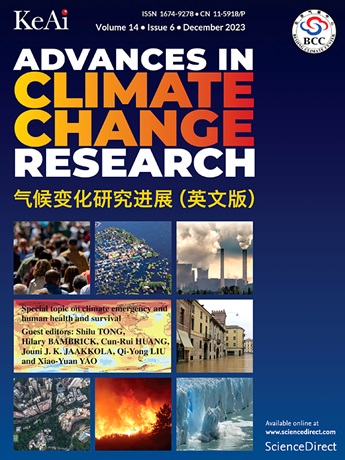Advancing early warning and surveillance for zoonotic diseases under climate change: Interdisciplinary systematic perspectives
IF 6.4
1区 地球科学
Q1 ENVIRONMENTAL SCIENCES
引用次数: 0
Abstract
Zoonoses account for the majority of emerging infectious diseases and pose a serious threat to human and animal health. Under global warming and climate change, zoonoses are significantly affected by influencing hosts, vectors, and pathogen dynamics as well as their interactions. Traditional zoonoses surveillance relies on molecular or serological diagnostic methods to monitor pathogens from animal or patient samples, which may miss the early warning signs of pathogens spillover from the environment. Nowadays, new technologies such as remote sensing, environment-based screening, multi-omics, and big data science facilitate comprehensive active surveillance, offering great potential for early warning and prediction. Despite the recent technological advances, there is few reviews that explores the integration of cutting-edge technologies aimed at constructing a robust early warning system. Therefore, we discussed the opportunities, barriers, and limitations of interdisciplinary emerging technologies for exploring early warning and surveillance of zoonoses. This systematic review summarized a practical framework for early surveillance integrated with a modified SEIR model for zoonoses in the context of climate change. It also outlined challenges and future prospects in terms of data sharing, early detection of unknown zoonoses and the move towards global surveillance.
在气候变化下推进人畜共患病的早期预警和监测:跨学科系统观点
本文章由计算机程序翻译,如有差异,请以英文原文为准。
求助全文
约1分钟内获得全文
求助全文
来源期刊

Advances in Climate Change Research
Earth and Planetary Sciences-Atmospheric Science
CiteScore
9.80
自引率
4.10%
发文量
424
审稿时长
107 days
期刊介绍:
Advances in Climate Change Research publishes scientific research and analyses on climate change and the interactions of climate change with society. This journal encompasses basic science and economic, social, and policy research, including studies on mitigation and adaptation to climate change.
Advances in Climate Change Research attempts to promote research in climate change and provide an impetus for the application of research achievements in numerous aspects, such as socioeconomic sustainable development, responses to the adaptation and mitigation of climate change, diplomatic negotiations of climate and environment policies, and the protection and exploitation of natural resources.
 求助内容:
求助内容: 应助结果提醒方式:
应助结果提醒方式:


